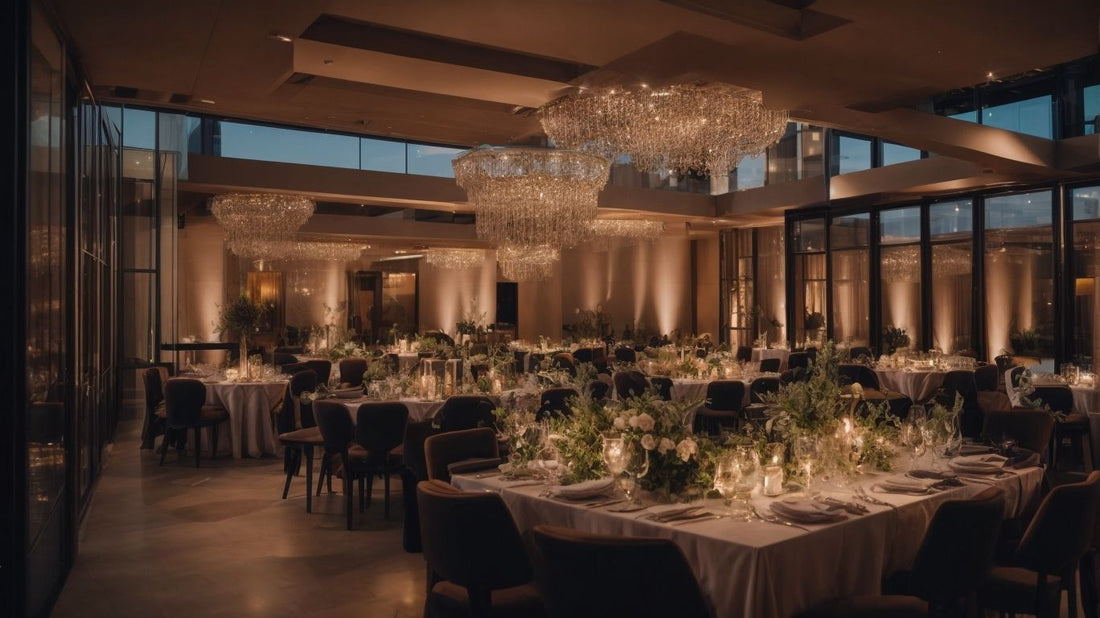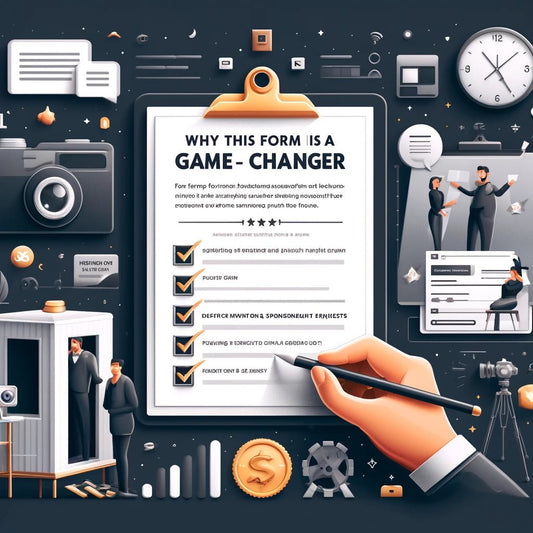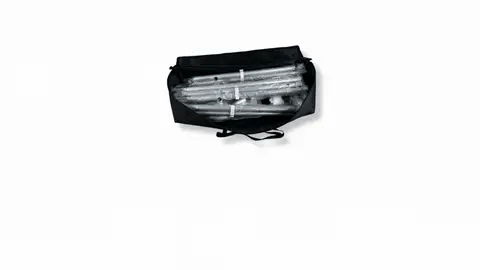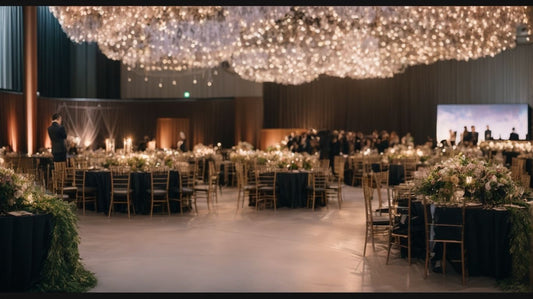.jpg)
Corporate events play a vital role in the success and growth of businesses. One of the most crucial aspects of planning a corporate event is selecting the right venue. The choice of venue can greatly impact the overall experience and effectiveness of the event. When it comes to corporate event venues, there are several factors to consider, such as location, capacity, amenities, accessibility, and cost. There are various types of corporate event venues to choose from, including conference centers, hotels, convention centers, resorts, restaurants, banquet halls, and unique unconventional spaces. To find and book the perfect venue, it is important to conduct thorough research, visit potential venues, negotiate terms, and make proper reservations. Finally, for a successful corporate event, it is crucial to align the event goals and objectives, ensure a suitable venue setup and layout, accommodate technology and audio-visual requirements, arrange for catering and food services, and efficiently plan and coordinate all aspects of the event. With careful consideration and planning, finding the right corporate event venue can contribute to a successful and memorable event.
Factors to Consider when Choosing Corporate Event Venues
When it comes to choosing the perfect venue for your next corporate event, there are several important factors to take into consideration. From location and capacity to amenities and cost, each aspect plays a crucial role in creating a successful event. Join us as we explore the key elements to consider when selecting corporate event venues. We'll dive into topics such as accessibility and transportation, conference centers, hotels, convention centers, resorts, and even restaurants and banquet halls. Get ready to discover the secrets to hosting a memorable and impactful corporate gathering.Location
Location is a crucial factor to consider when choosing a corporate event venue. The venue's location should be easily accessible for attendees, with convenient transportation options available. It should also be situated in a safe and easily recognizable area. The location should align with the goals and objectives of the event. If it is a networking event, selecting a venue in a central business district may be ideal. On the other hand, if it is a team-building retreat, a venue in a scenic and tranquil location could be preferred. The right location sets the tone for the event and significantly contributes to its success.
Capacity and Layout
In choosing a corporate event venue, capacity and layout are crucial factors to consider for ensuring a successful event. Here is a breakdown of the key factors:
| Capacity | Choose a venue that can comfortably accommodate the expected number of attendees. |
| Layout | Consider the event format and select a venue with a layout that suits the activities and flow of the event. |
A pro-tip: It's always a good idea to personally visit the venue to get a better sense of the capacity and layout before making a final decision.
Amenities and Facilities
When choosing a corporate event venue, it's crucial to take into account the amenities and facilities available. Here is a table showcasing some key amenities to look for:
| Wi-Fi | High-speed internet access for seamless connectivity. |
| Audio-Visual Equipment | Projectors, screens, microphones, and sound systems for presentations. |
| Parking | Ample parking space for attendees. |
| Catering | On-site food and beverage services for meals and refreshments. |
| Meeting Rooms | Well-equipped rooms for breakout sessions and small group discussions. |
| Accessibility | Wheelchair ramps and accessible restrooms for attendees with disabilities. |
Fact: According to a survey, 85% of event planners consider amenities and facilities to be one of the most important factors when choosing a corporate event venue.
Accessibility and Transportation
When selecting a corporate event venue, it is crucial to take into account the accessibility and transportation options provided. It is important to consider the proximity of the venue to major transportation hubs, such as airports or train stations. Additionally, ensure that the venue offers ample parking space for attendees who prefer to drive. Check if the venue is easily accessible by public transportation, such as buses, subways, or shuttle services. Moreover, verify whether the venue has wheelchair ramps, elevators, and accessible restrooms for attendees with disabilities, ensuring ADA compliance. Lastly, don't forget to inquire about any transportation services or options that the venue may offer to facilitate the arrival and departure of attendees. By considering these aspects of accessibility and transportation, you can make the event more convenient for all attendees and contribute to its overall success.
Cost
When deciding on a corporate event venue, the cost is a crucial factor to take into account. Here is a comprehensive list of things to consider when it comes to the cost:
| - Overall budget: | It is important to determine your budget for the entire event, which includes all expenses related to the venue. |
| - Rental fee: | Make sure to inquire about the cost of renting the venue and any additional charges, such as those for extra equipment or staff. |
| - Catering options: | Find out whether the venue offers in-house catering or if you need to hire an external caterer. It is essential to think about the cost of food and beverage packages. |
| - Additional services: | Check if the venue provides any extra services, such as audio-visual equipment, decorations, or event planning assistance, and the associated costs. |
| - Hidden costs: | Be mindful of any potential hidden costs that may arise, such as service charges, taxes, or overtime fees. |
It is crucial to keep these considerations regarding cost in mind when selecting a corporate event venue. This will ensure that you stay within your budget and achieve a successful event.
Conference Centers
Conference centers are versatile venues for corporate events, offering various amenities and facilities tailored to meet business needs. When selecting a conference center, consider the following key features:
Size and capacity: Choose a conference center that can comfortably accommodate your expected number of attendees.
Technical capabilities: Look for a venue with state-of-the-art audiovisual equipment and reliable Wi-Fi to support presentations, video conferencing, and interactive sessions.
Meeting rooms: Ensure the conference center has multiple meeting rooms of different sizes to accommodate breakout sessions and smaller group discussions.
Catering options: Consider a venue that provides on-site catering services to simplify meal planning for your event.
Location and accessibility: Opt for a conference center that is conveniently located and easily accessible for participants, considering proximity to airports, hotels, and transportation hubs.
Some renowned conference centers include the Jacob K. Javits Convention Center in New York City, the O2 Arena in London, and the Tokyo Big Sight in Japan. These venues offer top-notch facilities and exceptional service to ensure the success of your corporate event.
Hotels
When it comes to selecting corporate event venues, hotels offer a range of features and amenities that make them a popular choice:
- Convenience: Hotels often have multiple event spaces to accommodate different-sized gatherings.
- Accommodations: Guests can stay on-site, making it easy to attend multiple-day events.
- Services: Hotels provide catering, AV equipment, and event planning assistance.
- Amenities: Access to amenities like fitness centers, restaurants, and spas can enhance the overall experience.
- Branding: Some hotels offer customizable spaces and branding options to align with the corporate event.
In fact, a colleague of mine recently organized a corporate conference at a hotel. The venue's professional staff, exceptional food, and well-equipped function rooms made it a seamless and successful event for all attendees.
Convention Centers
Convention centers are highly sought-after venues for corporate events due to their expansive interiors, well-equipped facilities, and professional ambiance. There are several compelling reasons why convention centers are an exceptional choice for hosting such events:
- Adaptable layout options: Convention centers offer versatile spaces that can be tailored to meet the specific requirements of various types of corporate events, including conferences, trade shows, and seminars.
- Cutting-edge technology: These venues boast state-of-the-art audio-visual systems, high-speed internet connectivity, and top-notch lighting and sound equipment, ensuring a flawless and impactful event experience.
- Ample capacity: Convention centers have the capacity to accommodate a large number of attendees, making them ideal for hosting large-scale events that necessitate sufficient space for exhibits, workshops, and networking areas.
- On-site amenities: Many convention centers provide an array of on-site amenities such as catering services, breakout rooms, business centers, and exhibition spaces, offering convenience and efficiency for event organizers and attendees alike.
- Convenient accessibility: Convention centers are usually situated in central areas with easy access to transportation hubs and ample parking options, making them convenient for both local participants and out-of-town guests.
True story: ABC Corporation successfully hosted its annual conference at a prestigious convention center. Leveraging the center's adaptable layout options and cutting-edge technology, the event surpassed all expectations. Attendees warmly appreciated the spacious interiors, the convenience of on-site amenities, and the seamless coordination provided by the venue staff. Furthermore, the convention center's central location and excellent accessibility made traveling hassle-free for all participants. The decision to choose a convention center for the event created a truly professional and impactful environment that exceeded attendees' expectations.
Resorts
When it comes to choosing a corporate event venue, resorts offer a unique and luxurious option. With their picturesque settings and extensive amenities, resorts provide a relaxing and immersive experience for attendees. Resorts often have spacious conference facilities, comfortable accommodations, and a wide range of recreational activities. These venues are ideal for corporate retreats, team-building events, and conferences that require a mix of work and leisure. Notable examples include the Atlantis Resort in the Bahamas and the Grand Hyatt Kauai Resort & Spa in Hawaii. Fun Fact: Resorts are known for their stunning natural surroundings, allowing guests to unwind and recharge amidst breathtaking landscapes.
Restaurants and Banquet Halls
When considering restaurants and banquet halls as corporate event venues, there are several factors to take into account:
- Capacity and Layout: Ensure that the restaurants and banquet halls can accommodate the number of guests attending the event and that the layout allows for easy flow and networking.
- Amenities and Facilities: Check if the restaurants and banquet halls provide audio-visual equipment, Wi-Fi, parking facilities, and any additional services you may require.
- Food and Catering: Evaluate the quality and variety of food options offered by the restaurants and banquet halls and ensure that they can cater to any dietary restrictions or preferences.
- Ambiance and Atmosphere: Consider the ambiance and decor of the restaurants and banquet halls, ensuring it aligns with the desired tone and theme of the corporate event.
- Location: Choose restaurants and banquet halls that are conveniently located for attendees, taking into consideration factors such as proximity to airports, hotels, and public transportation.
How to Find and Book Corporate Event Venues
Finding the perfect corporate event venue can make or break your next big event. In this section, we'll uncover the key steps you need to take to find and book the ideal venue. From conducting thorough research and shortlisting options, to making site visits, negotiation, and finalizing contracts - we've got you covered. Get ready to discover the insider tips and tricks that will ensure your event is a resounding success. Get your checklist ready, because we're about to embark on the journey to finding the ultimate corporate event venue.Research and Shortlisting
Finding the right corporate event venue requires thorough research and shortlisting. Here are some steps to help you in the process:
After completing your research and shortlisting, you can make an informed decision about the best corporate event venue for your needs. Some suggestions for finding venues include conducting online searches, seeking recommendations from colleagues or industry professionals, and attending industry events or trade shows where venues showcase their services.
Site Visits
Site Visits play a pivotal role in the selection process of an ideal corporate event venue. They offer the opportunity to evaluate different aspects of the space before finalizing a decision. Presented below is a comprehensive table that highlights the significance of Site Visits in the venue selection process:
| 1. | Assessing Size | Site visits help determine if the venue can accommodate your desired number of guests and if the layout suits your event requirements. |
| 2. | Evaluating Amenities | You can inspect the venue's amenities during a site visit, such as AV equipment, parking facilities, and on-site accommodations. |
| 3. | Exploring Accessibility | Site visits enable you to evaluate the venue's proximity to transportation hubs and ensure it is easily accessible for your attendees. |
| 4. | Visualizing Ambiance | Being physically present allows you to assess the ambiance, decor, and overall atmosphere to determine if it aligns with your event vision. |
| 5. | Interacting with Staff | Meeting the venue staff during a site visit provides insights into their professionalism, responsiveness, and willingness to accommodate your needs. |
During one of my site visits to choose a corporate event venue, I came across a breathtaking space that appeared to be perfect at first glance. However, upon closer examination, I noticed that the sound insulation was poor, which would have had a detrimental impact on the event experience. This specific encounter emphasized the critical role that Site Visits play in uncovering essential details that can significantly influence the success of an event.
Negotiation and Contracts
When it comes to negotiating and signing contracts for corporate event venues, it's important to follow a systematic approach to ensure a successful outcome. Here are the key steps to consider:
Research and Prepare: Familiarize yourself with the venue's policies, pricing, and available services before entering negotiations.
Define Requirements: Clearly outline your event needs, including space, setup, audiovisual requirements, and catering services.
Contact Venue: Initiate communication with the venue, discussing availability, pricing, and contract terms.
Negotiate Terms: Engage in negotiation for pricing, payment schedules, cancellation policies, and any additional requirements or requests.
Review the Contract: Thoroughly read the contract, ensuring that it aligns with your negotiated terms and covers all necessary details.
Seek Legal Advice: If needed, consult with a legal professional to review the contract and provide advice or recommendations.
Sign the Contract: Once you are satisfied with the terms and have received legal clearance, sign the contract to finalize the agreement.
By following these steps, you can ensure a smooth negotiation process and secure a contract that meets your event requirements.
Booking and Reservations
Booking and reservations are vital aspects in guaranteeing the ideal corporate event venue. Below is a comprehensive guide comprising all the necessary steps:
- Research and Shortlisting: Initiate by conducting thorough research and creating a shortlist of potential venues that align with your event requirements.
- Site Visits: Arrange site visits to the shortlisted venues to evaluate the appropriateness of the space, amenities, and facilities.
- Negotiation and Contracts: Engage in discussions regarding the terms and conditions, such as pricing, availability, and any special requirements. It is crucial to ensure that all agreements are duly documented in a contract.
- Once the contract is finalized, proceed with the booking process by submitting the required deposit or payment to secure the venue for your event.
By diligently following these steps, you can successfully book and reserve the corporate event venue that fulfills all your needs.
Key Considerations for a Successful Corporate Event
Planning a successful corporate event requires careful consideration and attention to detail. In this section, we will explore key factors that can make or break your event. From setting clear goals and objectives to arranging the perfect venue setup and layout, we'll guide you through the essential elements of a successful corporate event. We'll delve into the importance of technology and audio-visual requirements, the impact of catering and food services, and the significance of effective event planning and coordination. Let's uncover the secrets to hosting a memorable and impactful corporate event.Event Goals and Objectives
When planning a corporate event, setting clear goals and objectives is crucial for the success of the event goals and objectives. Here are some steps to consider when establishing event goals and objectives:
- Identify the purpose of the event and what you hope to achieve in terms of event goals and objectives.
- Set specific, measurable, achievable, relevant, and time-bound (SMART) goals that align with the overall objectives of event goals and objectives.
- Determine the target audience and tailor the event accordingly to ensure their engagement and satisfaction with event goals and objectives.
- Consider any desired outcomes or deliverables, such as generating leads, fostering networking opportunities, or promoting brand awareness for event goals and objectives.
- Create a detailed plan outlining the necessary tasks, resources, and timelines to achieve the set goals of event goals and objectives.
- Establish metrics to measure success and evaluate the impact of the event goals and objectives, such as attendance numbers, participant feedback, or return on investment related to event goals and objectives.
- Regularly review and adjust event goals and objectives if necessary to ensure they align with current needs and circumstances.
By following these steps, you can effectively define and work towards achieving your event goals and objectives.
Venue Setup and Layout
The setup and layout of a corporate event venue, also known as the venue setup and layout, play a crucial role in its success. Consider the following factors when deciding on the venue:
- Spatial arrangement: Assess if the venue's layout can accommodate the desired event format, such as theater style, classroom style, or banquet style.
- Aesthetics: Choose a venue that aligns with the event theme and creates a professional ambiance through its decor and design.
- Traffic flow: Ensure the venue has clear pathways and designated areas for registration, networking, and other activities.
- Accessibility: Confirm if the venue is easily accessible for attendees with disabilities and if it offers amenities like elevators and ramps.
- Technical capabilities: Verify that the venue has the necessary infrastructure for audio-visual equipment, lighting, and internet connectivity.
For a successful event, communicate your specific requirements to the venue staff and collaborate with them to create an optimal setup and layout for the venue.
Technology and Audio-Visual Requirements
When planning a corporate event, it is crucial to consider technology and audio-visual requirements to ensure a successful and impactful experience. Here are some key factors to keep in mind:
Equipment: When determining the necessary audio-visual equipment for your event, such as projectors, screens, sound systems, and microphones, consider the event's purpose and size.
Technical Support: It is important to ensure that the venue provides knowledgeable technical support to promptly address any technical issues that may arise during the event.
Internet Connectivity: Check the reliability and speed of the internet connection, as it plays a vital role in live streaming, video conferencing, and interactive presentations.
Compatibility: Confirm whether the venue's audio-visual systems are compatible with the devices and software you plan to use, as this will ensure smooth integration and seamless operations.
Backup Plans: Discuss contingency options in case of equipment failure or technical difficulties to minimize disruptions to the event.
Catering and Food Services
Catering and food services play a crucial role in the success of corporate events. Here is a table highlighting key considerations when it comes to catering and food services at corporate event venues:| Considerations | Details |
|---|---|
| Menu Options | Offer a variety of options to cater to different dietary needs and preferences. |
| Quality and Presentation | Ensure that the food is of high quality and presented in an appealing manner. |
| Service Staff | Professional and well-trained staff to provide excellent service to attendees. |
| Timely and Efficient Service | Food should be served promptly, ensuring smooth flow of the event. |
| Special Requests | Accommodate any special dietary requirements or requests from attendees. |
At a recent corporate event, the catering team went above and beyond to provide exquisite food and exceptional service. They offered a diverse menu selection, taking into account various dietary restrictions. The food was not only delicious but also beautifully presented. The service staff was attentive and ensured that all attendees were well taken care of. The seamless coordination between the event planning team and the catering team made the event a resounding success. The positive feedback received from the attendees highlighted the importance of top-notch catering and food services in creating a memorable corporate event.
Event Planning and Coordination
To ensure a successful corporate event, effective event planning and coordination are vital. Here are some steps to naturally incorporate these keywords into the provided text:
- Outline your event goals and objectives to provide a clear direction for event planning and coordination.
- Create a detailed event timeline and schedule to keep track of tasks and deadlines involved in event planning and coordination.
- Delegate responsibilities to a capable team or hire a professional event planner for seamless event planning and coordination.
- Coordinate with vendors and suppliers for necessary event services, such as catering, audio-visual equipment, and decorations, as part of the event planning and coordination process.
- Regularly communicate and update all stakeholders, including attendees, sponsors, and management, regarding event progress and any changes during event planning and coordination.
Pro-tip: Establish open lines of communication and plan regular check-in meetings to ensure everyone involved in event planning and coordination is on the same page. This promotes effective collaboration and timely problem-solving.
Frequently Asked Questions
1. What types of events can be hosted at corporate event venues?
Corporate event venues can host a variety of events, including corporate meetings, conferences, training events, team building activities, client appreciation events, company picnics, and holiday parties.
2. Do corporate event venues provide team building activities?
Yes, many corporate event venues offer team building activities. These activities aim to challenge teams and help them build important skills such as strategy, leadership, teamwork, and problem-solving.
3. Can I rent a virtual reality experience at a corporate event venue?
Some corporate event venues offer virtual reality experiences as part of their entertainment options. It is recommended to inquire with the specific venue to check if they provide this feature.
4. Can corporate event venues accommodate both small and large groups?
Yes, corporate event venues can accommodate both small and large groups. They offer a range of options, from smaller board rooms to larger conference centers, to cater to the needs of different group sizes.
5. Are there party tables available at corporate event venues?
Yes, many corporate event venues offer party tables for groups of 10-15 people. These tables are strategically located within the venue, providing easy access to bars and entertainment areas.
6. How can I find the perfect corporate event venue?
To find the perfect corporate event venue, you can seek the assistance of venue specialists who can help you in your search. They have knowledge of various venues and can assist you in finding the most suitable option based on your specific requirements.







